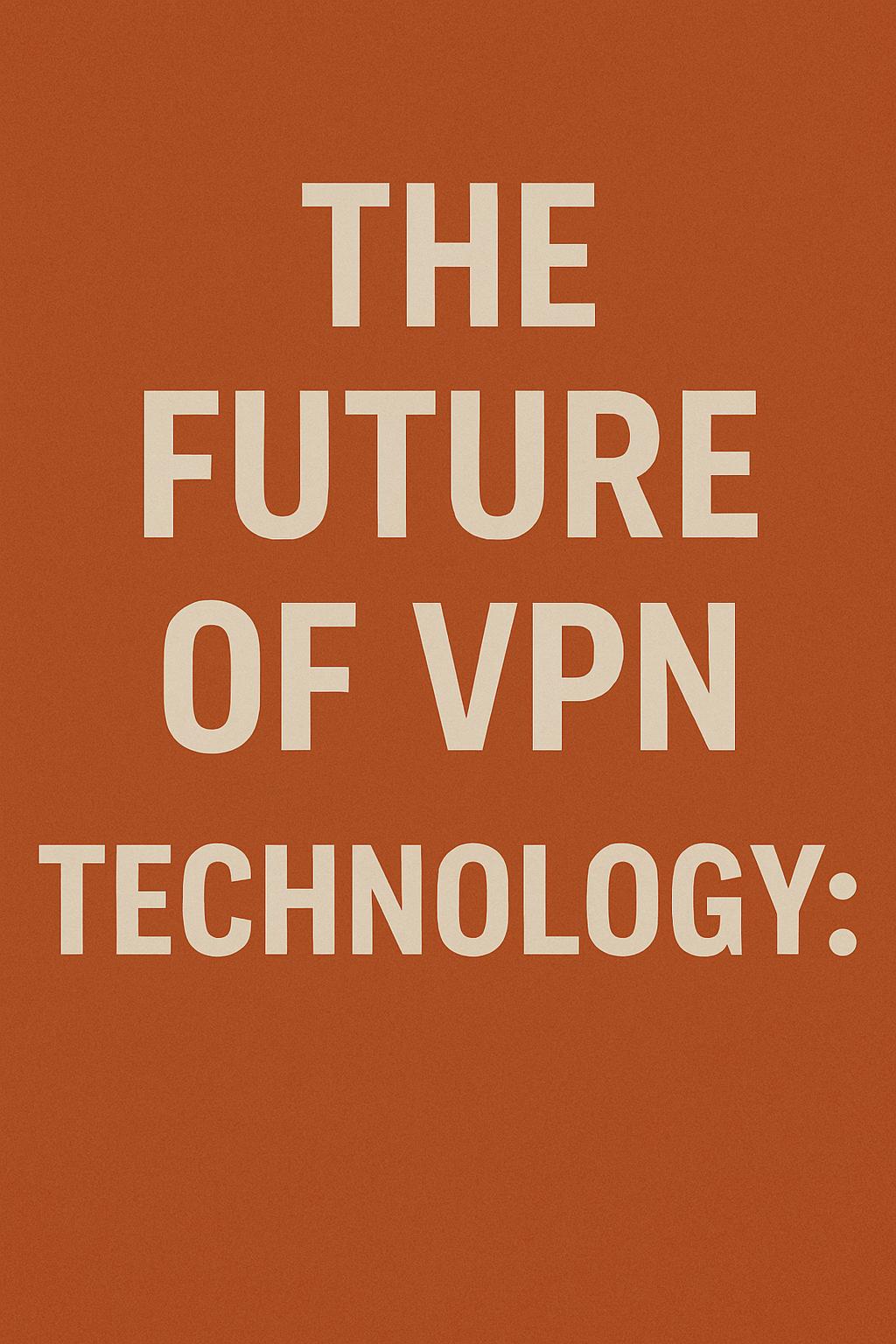Introduction
VPNs have evolved rapidly in the past two decades. What started as a business tool for connecting remote workers has become a mainstream privacy essential.
But as censorship grows, laws tighten, and new threats appear, VPN technology itself is also changing. In this article, we’ll look at the future of VPNs — from decentralised networks to AI-driven security.
1. The Shift from Legacy Protocols to Modern Standards
For years, VPNs relied on PPTP, L2TP/IPsec, and OpenVPN. They worked, but they came with overhead and complexity.
The future is clearly moving towards:
- WireGuard → lightweight, fast, highly secure.
- Hybrid protocols → combining VPN and Smart DNS for better streaming.
- Post-quantum cryptography → encryption designed to resist quantum computers.
👉 Expect VPN providers to migrate entirely away from legacy protocols in the next 5–10 years.
2. Decentralised VPNs (dVPNs)
Traditional VPNs depend on central providers. That means you have to trust one company with your data.
Decentralised VPNs (dVPNs) change this by using peer-to-peer or blockchain-based networks:
- Instead of connecting to a company-owned server, you connect to other users’ devices.
- The network is distributed, so no single provider controls everything.
- Payments often use crypto or tokens, creating incentives for peers to share bandwidth.
Examples: Mysterium, Orchid, Sentinel.
📌 Pros:
- Harder to censor.
- No central company to trust.
- Can be cheaper if run at scale.
📌 Cons:
- Early technology → not always stable.
- Complex for average users.
- Legal grey areas in some countries.
3. AI-Optimised VPNs
Artificial intelligence is already being used in cybersecurity, and VPNs are no exception. AI can:
- Optimise routing: choosing the fastest path in real time.
- Detect throttling: switching servers automatically if your ISP slows traffic.
- Spot anomalies: identifying unusual patterns (e.g., attempted MITM attacks).
- Adaptive encryption: selecting the best balance of speed vs security depending on activity.
👉 Future VPNs will be “self-tuning” — adjusting to your needs without manual input.
4. Integration with Everyday Devices
VPNs are moving beyond laptops and phones. Expect to see:
- Routers with built-in VPNs → protecting all home devices by default.
- Smart TVs & streaming sticks → VPN apps pre-installed.
- IoT devices → security layers for connected homes.
- Cars → in-car entertainment and navigation routed securely.
5. Governments, Censorship & Cat-and-Mouse Games
As VPNs grow, so do attempts to block them. In 2025 we already see:
- China’s Great Firewall detecting and blocking VPN traffic.
- The UK’s Online Safety Act driving a surge in VPN adoption.
- Netflix and BBC iPlayer blocking VPN IP ranges.
Future VPNs will need more obfuscation technology to disguise VPN traffic as “normal” internet use. Expect innovation in:
- Stealth protocols (e.g., Shadowsocks, obfs4).
- Domain fronting (making VPN traffic look like visits to popular websites).
6. The Role of Quantum Computing
Quantum computers threaten current encryption methods. While they’re not yet powerful enough to break AES-256, researchers agree it’s a future risk.
VPN providers are already testing:
- Post-quantum cryptographic algorithms.
- Hybrid systems combining current and future-proof encryption.
7. Privacy Beyond VPNs
In the long run, VPNs will be part of a bigger privacy ecosystem, including:
- Decentralised identity systems.
- End-to-end encrypted messaging (Signal, Matrix).
- Private browsers and OS-level privacy features.
VPNs won’t be a silver bullet — but an important layer in a more advanced stack of privacy tools.
Conclusion
The VPNs of tomorrow will look very different from today’s. Expect:
- Faster, simpler protocols like WireGuard to dominate.
- Decentralised VPNs to grow as users demand less reliance on central companies.
- AI-driven VPNs to automate performance and security.
- Integration into every device — from routers to cars.
- Post-quantum encryption to secure data against future threats.
One thing is certain: as the internet becomes more regulated and monitored, VPN technology will continue to adapt — staying one step ahead in the fight for privacy and freedom.
🔗 Keep exploring:





